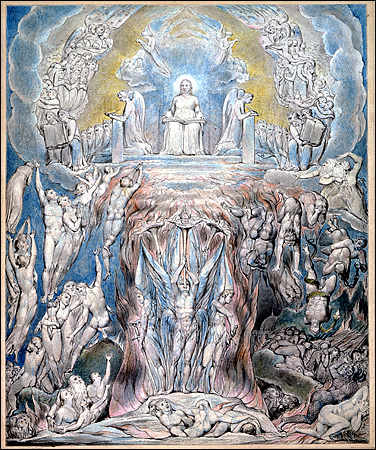| << Chapter < Page | Chapter >> Page > |
Other religions disagree: Judaism, Christianity and Islam, for example, are unanimous that it makes a great deal of difference whether or not the world and everything in it was created by God. But let us take a look at the two other kinds of myth.
Foundation myths (or origin myths) describe the foundation of the religion itself. In religions that have historical founders, this involves the founder's life and works. For Christianity, this is the life of Jesus, for Islam, the life of Muhammad, and so on. Even in religions that do not have a single historical founder, certain individuals take on such an important role that we can see their life stories as foundation myths. In Judaism, for example, the story of the life of Abraham is central to what it means to be a Jew. In Hinduism, the life of Krishna plays the same role.
End–time myths (or eschatological myths) are the other side of the creation myths. They describe the end of the world.
Some religions, like Hinduism believe that ours is just one in an endless succession of worlds: As one world dies out, a new one is created to take its place. Such religions do not have end–time myths in the true sense of the word, though they may have stories that tell the details of the recreation of worlds.

Other religions, like Judaism, Christianity and Islam, say that the world was created at a specific time, and that it will end at a specific time, and that this will be for keeps: no new world will be created afterwards. The details of this event vary from one religion's end–time myth to the other.
Myths are not always religious in nature: there are also secular and national myths. To give an example from South Africa, for Afrikaners the Great Trek of the 1830's serves as a foundation myth. It was from that event onwards that they started to think of themselves as a nation.
For members of the African National Congress, on the other hand, the Great Trek was a historical disaster. For them, the great foundation myth is the Kliptown Conference of 1955. Both of these events really happened. So they are not myths in the common sense of the word (remember, in the common sense of the word, a myth is something that is not true or did not happen). But they are myths in the Religion Studies sense of the word "myth". In terms of the importance that they gained in people's minds, both of them serve as important foundation myths.
This myth of creation comes from the Boshongos of Central Africa.
In the beginning there was only darkness, water, and the great god Bumba. One day Bumba, in pain from a stomach ache, vomited up the sun. The sun dried up some of the water, leaving land. Still in pain, Bumba vomited up the moon, the stars, and then some animals: the leopard, the crocodile, the turtle, and, finally, some men.
This myth is told by the Mande people of Mali:
At first Mangala was alone. Although Mangala did not have a physical form he was troubled by having matter inside of him. After removing the matter he tried to turn it into a seed. This first seed fell apart, but instead of giving up, Mangala decided to try again. This time, he used two seeds and placed them inside of a womb. The seeds transformed into fish. One of these fish, Pemba, tried to escape and in doing so created Earth but almost destroyed the womb. Mangala used Pemba's brother Farro and salvaged his creation by turning it into the sun. Farro was turned into a human and populated the Earth with his followers.
And this is the creation myth of the Yoruba people of Nigeria:
A long time ago, Olurun lowered a chain from the sky down to the Earth, which at that time was all water. He sent his son Obatala down to Earth with a chicken, some dirt and a palm nut. Obatala used the chicken to spread dirt until there was dry land. Obatala planted the seed and started the first kingdom, Ile–Ife. He was the kingdom's first ruler and all of the Yoruba are his descendants.

Notification Switch
Would you like to follow the 'Learning about religion' conversation and receive update notifications?